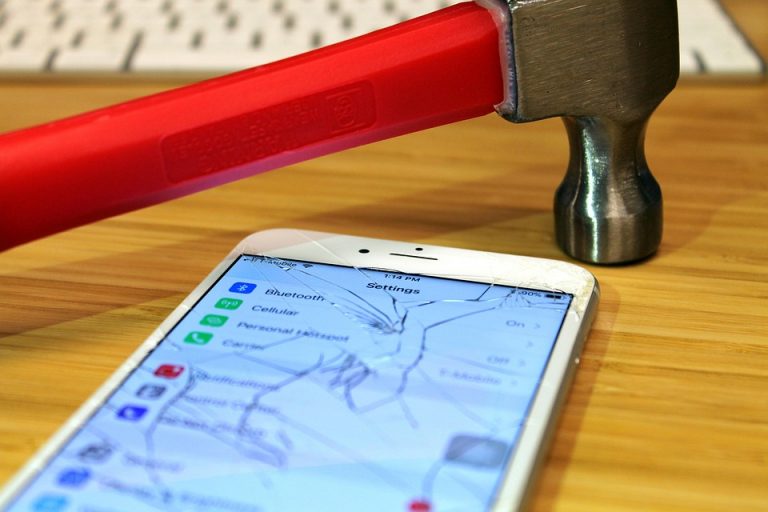When it comes to your iPhone, security flaws can feel like a punch in the gut. You trust this little device with your life—your personal messages, banking details, even your health information. But what if I told you there are security issues lurking in the shadows? Let’s peel back the layers and expose these vulnerabilities that could affect you right now.
Contents
- What Are iPhone Security Flaws?
- 1. Outdated Software: A Hidden Danger
- 2. Weak Passwords: The Key to Your Kingdom
- 3. Public Wi-Fi: A Double-Edged Sword
- 4. Bluetooth Vulnerabilities: An Open Door
- 5. Malicious Apps: A Wolf in Sheep’s Clothing
- 6. Phishing Attacks: The Deceptive Trap
- 7. Location Tracking: Know Where You Are—But So Do They
- Bottom Line
What Are iPhone Security Flaws?
iPhone security flaws refer to weaknesses in the device’s software or hardware that can be exploited by hackers. These flaws can lead to unauthorized access, data breaches, and even identity theft. Understanding these issues is crucial because your iPhone is not just a gadget; it’s a vault of your personal information and memories.
So why should you care? Because knowledge is power. The more you know about these vulnerabilities, the better equipped you’ll be to protect yourself and your loved ones.
1. Outdated Software: A Hidden Danger
One of the most significant security risks comes from running outdated software. Apple regularly releases updates to patch known vulnerabilities. Ignoring these updates is like leaving your front door wide open.
Why It’s Critical
- Exploited Vulnerabilities: Hackers are always on the lookout for outdated systems to exploit. These security flaws can allow them to gain access to your data.
- Neglected Features: Software updates often come with new security features that enhance your device’s protection.
What You Can Do
- Update Regularly: Make it a habit to check for updates weekly. Go to Settings > General > Software Update.
- Enable Automatic Updates: This way, you won’t have to remember to do it manually.
2. Weak Passwords: The Key to Your Kingdom
Your iPhone is only as secure as the password you set. If your password is weak or easily guessable, you might as well be handing your phone over to a stranger.
Why It’s Critical
- Brute Force Attacks: Hackers can use software to guess your password. The simpler it is, the faster they’ll crack it.
- Access to Everything: A compromised password can lead to unauthorized access to all your apps and sensitive information.
What You Can Do
- Use Strong Passwords: Create a unique password with a mix of letters, numbers, and symbols.
- Enable Two-Factor Authentication: This adds an extra layer of security, making it much harder for hackers to gain access.
3. Public Wi-Fi: A Double-Edged Sword
Using public Wi-Fi is convenient, but it can be a breeding ground for security flaws. Hackers often set up fake networks to intercept your data.
Why It’s Critical
- Data Interception: Without proper encryption, all your data can be easily monitored and stolen.
- Man-in-the-Middle Attacks: Hackers can insert themselves between you and the website you’re trying to access, capturing sensitive information.
What You Can Do
- Avoid Public Wi-Fi for Sensitive Transactions: If you must use it, avoid accessing banking or shopping sites.
- Use a VPN: A Virtual Private Network encrypts your internet connection, providing an additional layer of security.
4. Bluetooth Vulnerabilities: An Open Door
Bluetooth is a handy feature, but it also opens a door for potential attacks. Security flaws in Bluetooth can allow hackers to gain access to your device without physical proximity.
Why It’s Critical
- Unauthorized Access: If your Bluetooth is on, hackers can connect to your phone and potentially access your data.
- Device Pairing Risks: If you accidentally pair with a compromised device, you could find yourself sharing information without knowing it.
What You Can Do
- Turn Off Bluetooth When Not in Use: This simple step can significantly reduce your risk.
- Be Cautious with Pairing: Only connect to devices you trust and recognize.
5. Malicious Apps: A Wolf in Sheep’s Clothing
The App Store is generally a safe place, but not every app is created equal. Malicious apps can slip through the cracks, posing severe security risks.
Why It’s Critical
- Data Harvesting: Some apps ask for more permissions than necessary, allowing them to collect sensitive information.
- Malware: Even legitimate-looking apps can contain malware that compromises your device.
What You Can Do
- Read Reviews and Ratings: Before downloading an app, check user reviews and ratings.
- Limit Permissions: Only grant apps the permissions they truly need to function.
6. Phishing Attacks: The Deceptive Trap
Phishing is a tactic where hackers trick you into revealing sensitive information, often through emails or messages that seem legitimate.
Why It’s Critical
- Identity Theft: Falling for a phishing scam can lead to unauthorized access to your accounts.
- Financial Loss: Hackers can drain your bank accounts or make fraudulent purchases.
What You Can Do
- Verify the Source: If you receive an unexpected message or email, verify the sender before clicking any links.
- Educate Yourself: Familiarize yourself with common phishing tactics to recognize them.
7. Location Tracking: Know Where You Are—But So Do They
Your iPhone’s GPS capabilities are excellent for navigation, but they can also expose your location to malicious actors.
Why It’s Critical
- Privacy Invasion: If someone gains unauthorized access to your location data, they can track your movements.
- Targeted Attacks: Hackers may use your location information to plan physical attacks.
What You Can Do
- Manage Location Settings: Go to Settings > Privacy > Location Services to control which apps can access your location.
- Disable Location Sharing: Only share your location with trusted contacts when absolutely necessary.
Bottom Line
The world of iPhone security flaws is complex, but you can take control. By staying informed and proactive, you can safeguard your personal information and enjoy peace of mind. Remember, knowledge is power.
Call to Action
Take a moment today to check your iPhone settings. Update your software, strengthen your passwords, and be aware of the signs of phishing. Your personal information is worth the effort!
FAQs
Q: How often should I update my iPhone’s software?
A: Check for updates at least once a week or enable automatic updates.
Q: What’s the best way to create a strong password?
A: Use a mix of upper and lower case letters, numbers, and symbols.
Q: Can I trust all apps in the App Store?
A: Not all apps are safe. Always read reviews and limit permissions.
By arming yourself with this knowledge about iPhone security flaws, you’re taking a crucial step toward protecting what matters most. Don’t let ignorance leave you vulnerable—be proactive and secure your digital life.








